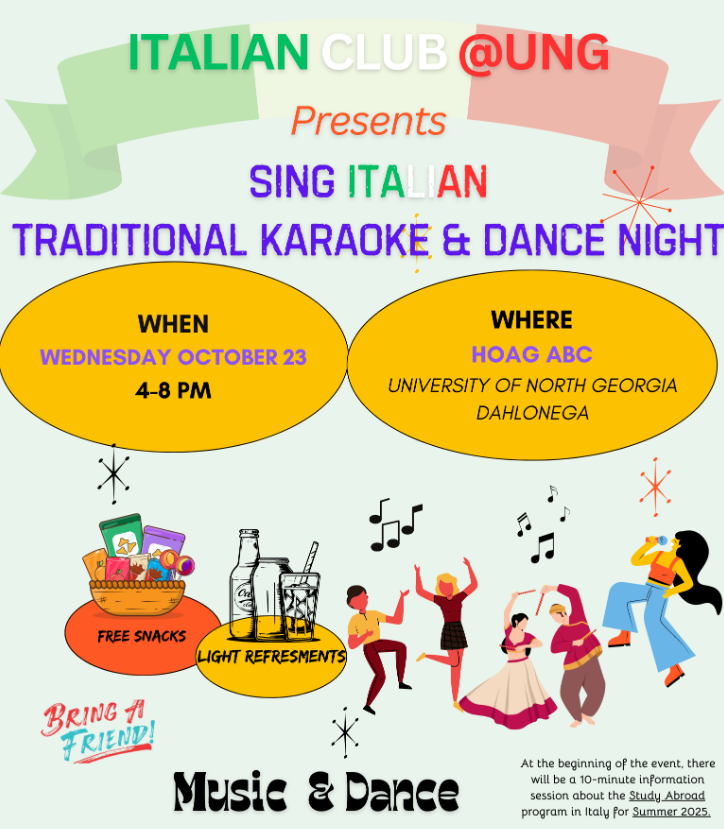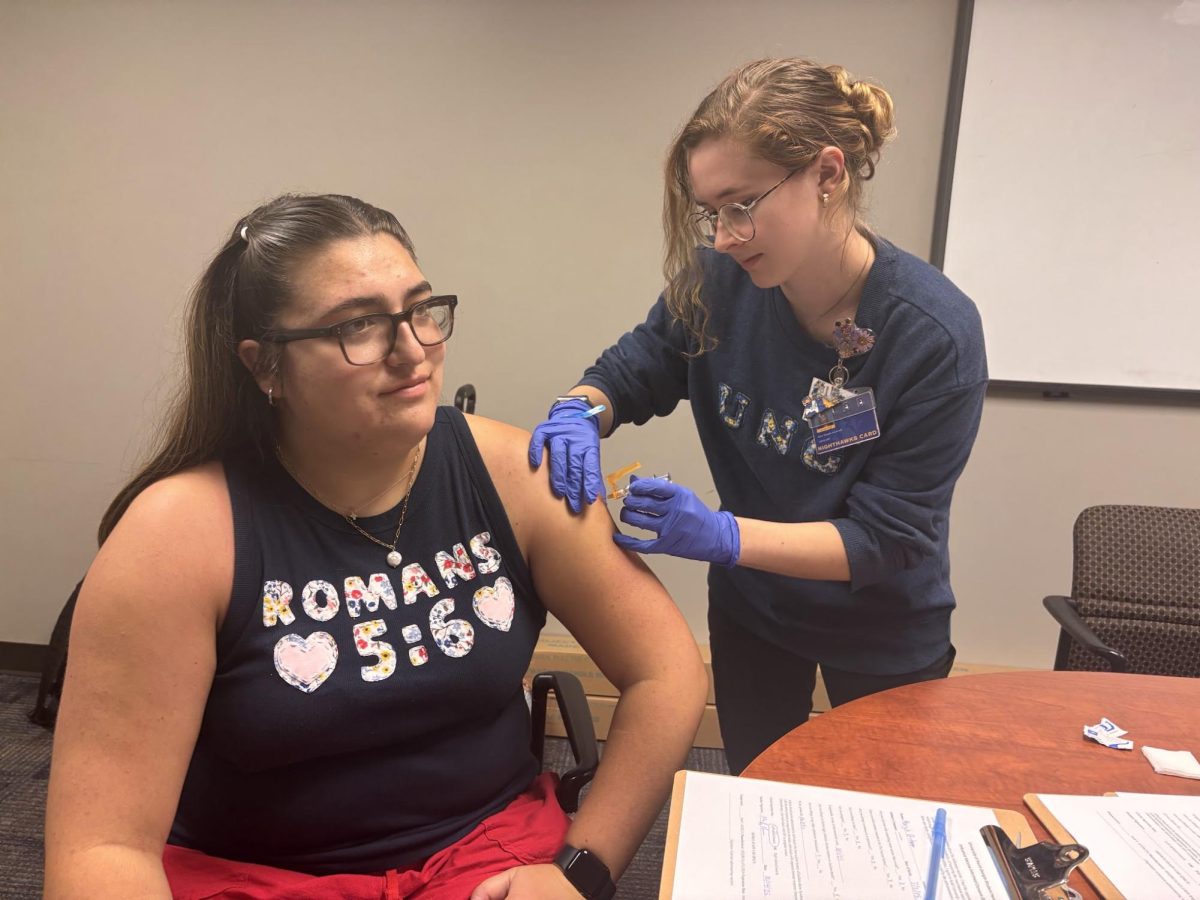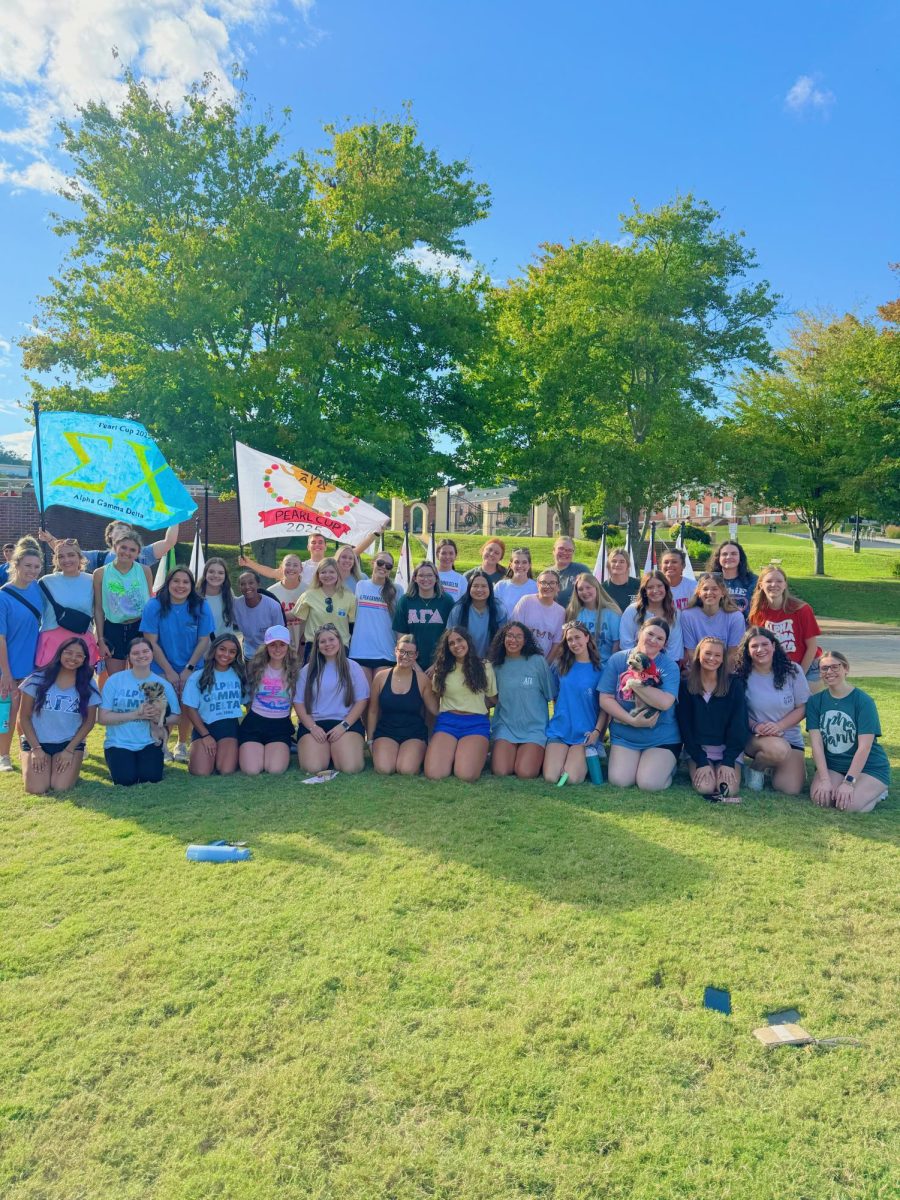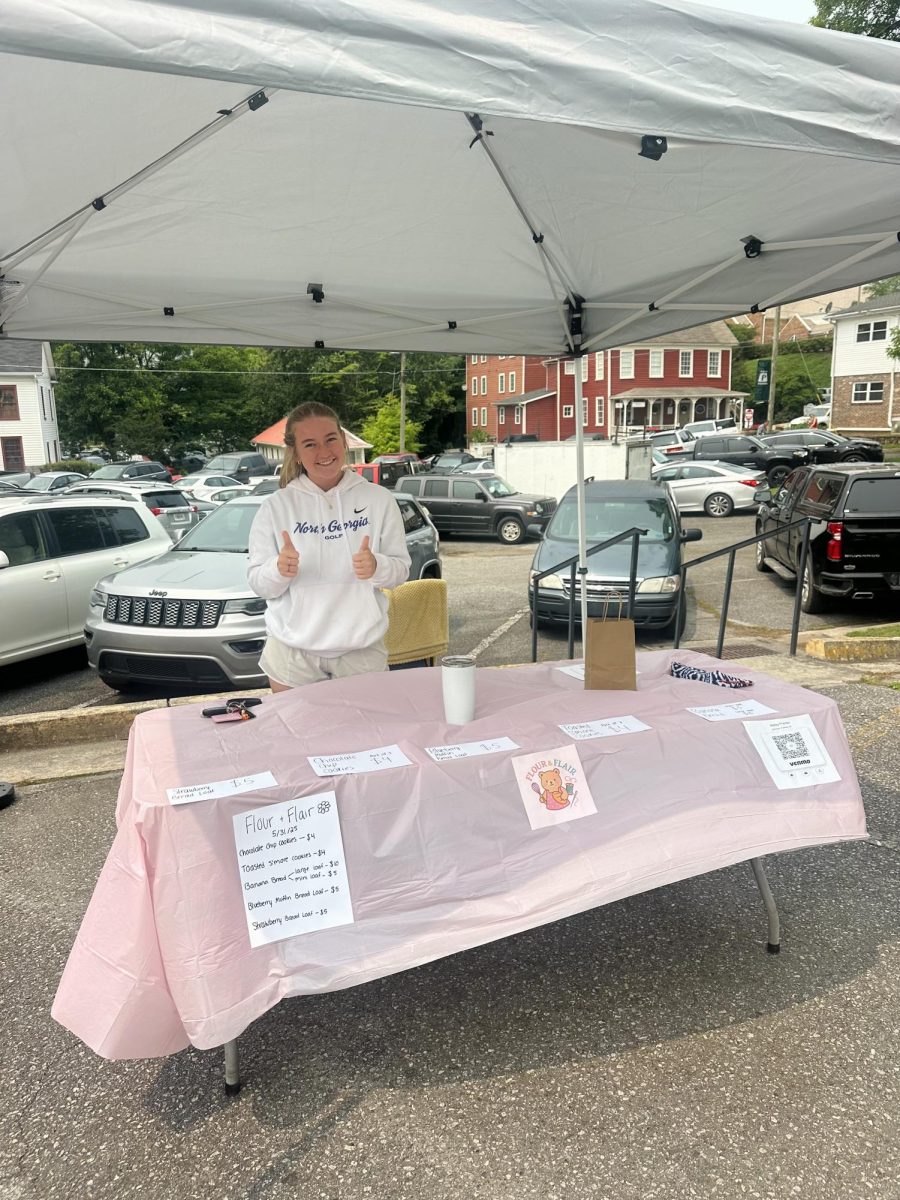The University of North Georgia Italian Club is hosting an Italian Dance and Karaoke Night from 4 – 8 p.m. on Oct. 23. Located in the Hoag ABC room on the Dahlonega campus, students will learn dances that have influenced centuries of Italian heritage and experience music ranging from the 1930s to songs as new as 2024.
The event’s activities will alternate between karaoke and dance throughout the night to help students learn and enjoy specific styles and genres. After introducing each song, Italian Club advisor Giuseppe Sanfilippo will lead participants in learning the choreography of each dance.
Italian Club President Teo Asteghene said the event aims to create a space where everyone can enjoy Italian culture. “You don’t need to know Italian or be studying it to [join].”
“If you’re thinking about joining the Italian Club, we have a lot of events that foster a sense of community where everyone can express themselves,” Italian Club Vice President Ryan Cunningham added.
The club plans to introduce several dance styles like the Tarantella, Pizzica and Ballo Liscio. These dance styles play a significant role in Italian culture, customs and traditions. The Tarantella is often performed in pairs at weddings and other festivities. This style is often characterized by its lively movements and fast pace. The Pizzica often involves a pair or group of participants and is commonly associated with community gatherings and music festivals such as La Notte della Taranta. Ballo Liscio encompasses the Waltz, Mazurka, Tango and other styles. It is performed in ballrooms and dance halls.
Alongside these dances, students will be immersed in music spanning various genres and eras. A few examples of what students might hear include “Bella Ciao,” “L’essenziale,” “Funiculì Funiculà” and “Non Sono Una Signora.”
“Italy’s musical heritage has profoundly influenced the development of American music. The large influx of Italian immigrants in the late 19th and early 20th centuries introduced rich musical traditions, such as opera and folk songs.” – Giuseppe Sanfilippo, Program Director of Study Abroad in Italy
Linked to the Italian resistance during WWII, “Bella Ciao” — which translates into “Goodbye Beautiful” — is a traditional Italian folk song that has recently gained global recognition and has been used in films and television series.
Marco Mengoni’s 2013 song “L’essenziale” is a ballad about essentiality and maintaining a loving relationship. This slow piece is helpful for students practicing Italian pronunciation.
“Funiculì Funiculà” is a popular 1880 Neapolitan song by Luigi Denza. Its popularity has led many Italian artists to record the song and has been adapted in American folk music, affecting genres like country and pop.
“Non Sono Una Signora” is a pop-rock song performed by Loredana Bertè in 1982. Considered one of her most popular songs, “Non Sono Una Signora” vocalizes independence and defiance. This song has also been adapted into Spanish.
The Italian Dance and Karaoke Night will allow UNG students to explore the culture and musical heritage of Italy in a friendly and interactive setting. The event will include a brief informational session for students interested in the Italian study abroad program scheduled for the summer of 2025. They will also provide a variety of snacks and light refreshment for participants to enjoy.
























